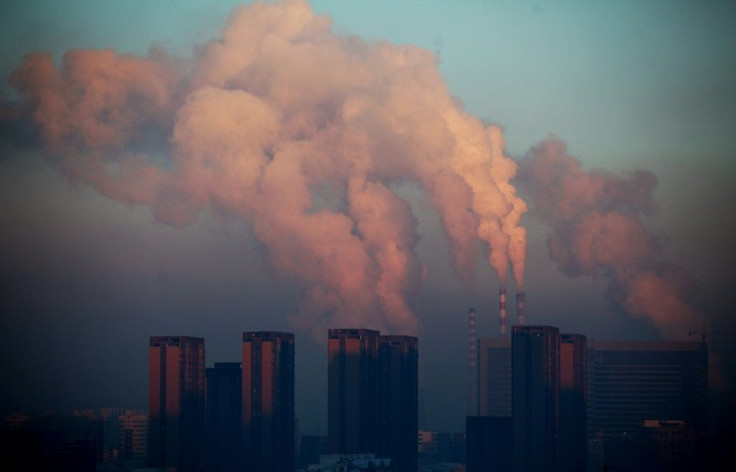China Submits New Climate Plan Days Before COP26 Summit
China on Thursday submitted a renewed emissions cutting plan that promised to peak carbon pollution before 2030 but which experts said stopped short of the radical decarbonisation required of the world's largest polluter.
Beijing's new submission to the United Nations, just days before the COP26 climate summit, confirmed its goal to achieve carbon neutrality before 2060 and slash its emissions intensity -- the amount of emissions per unit of economic output -- by more than 65 percent.
Analysts said these amounted to minor improvements on China's existing plan and were far from sufficient from the country responsible for more than a quarter of all carbon pollution.
As part of the 2015 Paris Agreement, all countries agreed to slash emissions in order to limit temperature rises to "well below" two degrees Celsius and to strive for a safer 1.5-C warming cap.
Under the accord's "ratchet" mechanism, signatories agreed to submit new and more ambitious emissions cutting plans -- known as Nationally Determined Contributions, or NDCs -- every five years.
Last year, President Xi Jinping indicated that China would achieve carbon neutrality around 2060 and peak emissions around 2030.

But China had been a major NDC holdout, missing several submission deadlines during the year-long delay of COP26 due to the coronavirus pandemic.
It was hoped its new plan could build momentum ahead of the summit in Glasgow, which begins on Sunday with world leaders seeking to map out a path to avoid climate disaster.
According to the document, published on the UN's climate change website, China will increase its share of non-fossil fuels in primary energy consumption to 25 percent, up from the 20 percent previously pledged.
It also plans to increase its forest stock by six billion cubic metres compared with 2005 levels and "bring its total installed capacity of wind and solar power to over 1.2 billion kilowatts by 2030".
However it was not immediately clear how Beijing plans to draw down its emissions in line with what science says is needed to avoid catastrophic levels of heating this century.

UN climate chief Patricia Espinosa said China's commitment to net-zero emissions before 2060 was a "very positive development".
"Now we need to work with China in trying to bring the 2060 as early as possible, and what we are doing with many countries is to say: that is very good but we need clear plans now," she told a press briefing.
Li Shuo, an analyst with Greenpeace Asia, said China's new NDC "missed an opportunity to demonstrate ambition".
"China's decision on its NDC casts a shadow on the global climate effort," he tweeted.
"The planet can't afford this being the last word. Beijing needs to come up with stronger implementation plans to ensure an emission peak before 2025."
China has been accused of sidestepping calls to stop building new coal-fired power plants, the single largest source of carbon pollution.
Nick Mabey, chief executive of the E3G environmental think tank, said China's new emissions plan was virtually "unchanged" from previous promises.
"This lowers other countries' confidence in the delivery of China's deep decarbonisation pathway," he said.
The UN says greenhouse gas emissions must be cut nearly in half by 2030 to keep 1.5C within reach.
This week it said countries' latest pledges put Earth on course to warm 2.7C this century.
Its Emissions Gap report also called on countries to start slashing emissions immediately and to align their net-zero plans with the 1.5C pathway.
More than 120 heads of state and government will travel to Glasgow to kick off the 13-day meeting, including US President Joe Biden, India's Narendra Modi, French leader Emmanuel Macron and Australia's Scott Morrison.
Xi has not left China during the pandemic and is unlikely to attend.
© Copyright AFP {{Year}}. All rights reserved.





















